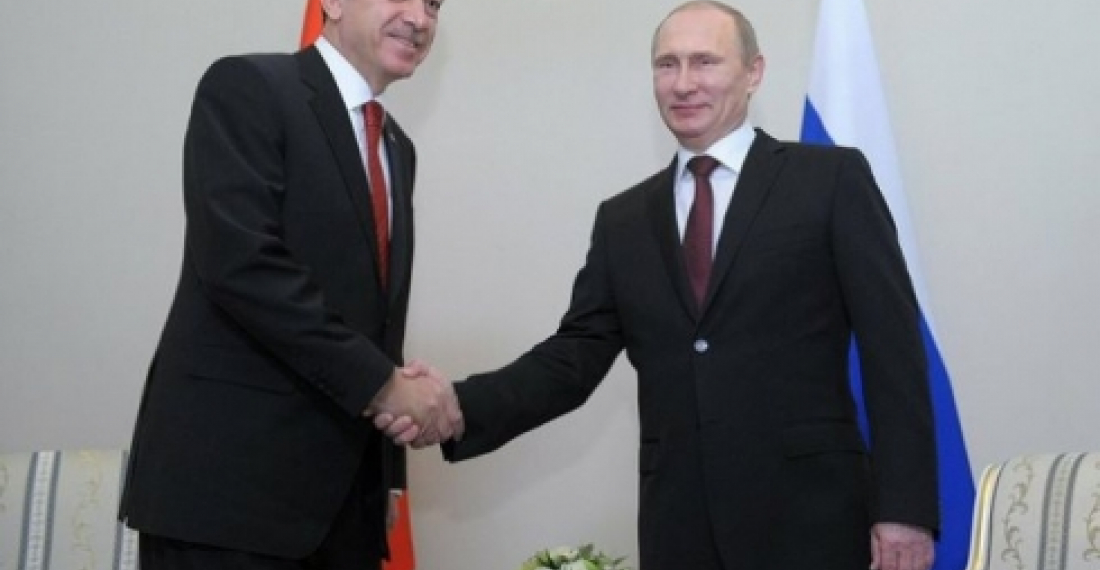"Russia and Turkey have obligations in the region from the standpoint of Azerbaijan-Armenia conflict, situation in Syria and development of the situation in Iraq," Turkish Prime Minister, Recip Tayip Erdogan said after meeting with Russian President Vladimir Putin in St Petersburg on Friday morning.
"There are basic steps that we must take, and the talks that we held on these topics allowed us to create a platform and a base for resolving the issues," added the Turkish leader.
Erdogan and Pution later participated in a session of the High Level Russian Turkish Co-operation Council.
Welcoming Erdogan to St Petersburg President Putin said:
"We have not met for quite a while, but even without our personal direct involvement, relations between Russia and Turkey continue their successful development. I think that you and I will certainly do nothing to hinder this development at our meeting today. On the contrary, it is our intention to help it even further, and I am sure that we can achieve this. We have good cooperation plans.
I want to thank you for accepting our invitation to come here for these consultations."
On his part Prime Minister Erdogan stated:
"I place great importance on today's talks, during which we will discuss current bilateral and international issues. I think that there are steps we can take and projects that we should undertake together. I am sure that we will discuss today the future possible joint steps we can take and outline plans for their implementation."
Turkey has for some time been trying to have an understanding with Russia on both the Caucasus as well as the Levant, but the Russian leadership has proved very elusive - willing to talk but hardly to co-ordinate positions. There is nothing to suggest that things are different this time round, though Turkish leaders hope for a minimum of common ground that may help break the impasse on some of the issues simmering on Turkey's borders.
source: commonspace.eu
photot: Prime Minister Erdogan of Turkey and President Putin of Russia after their meeting in St Petersburg on 22 November 2013 (picture courtesy of the Press Service of the President of Russia).







